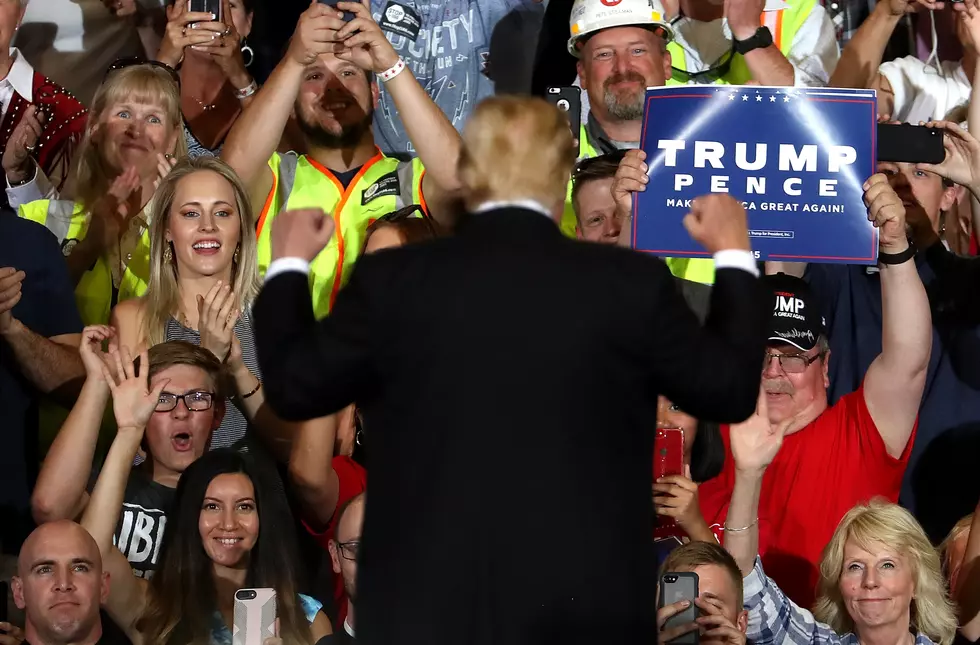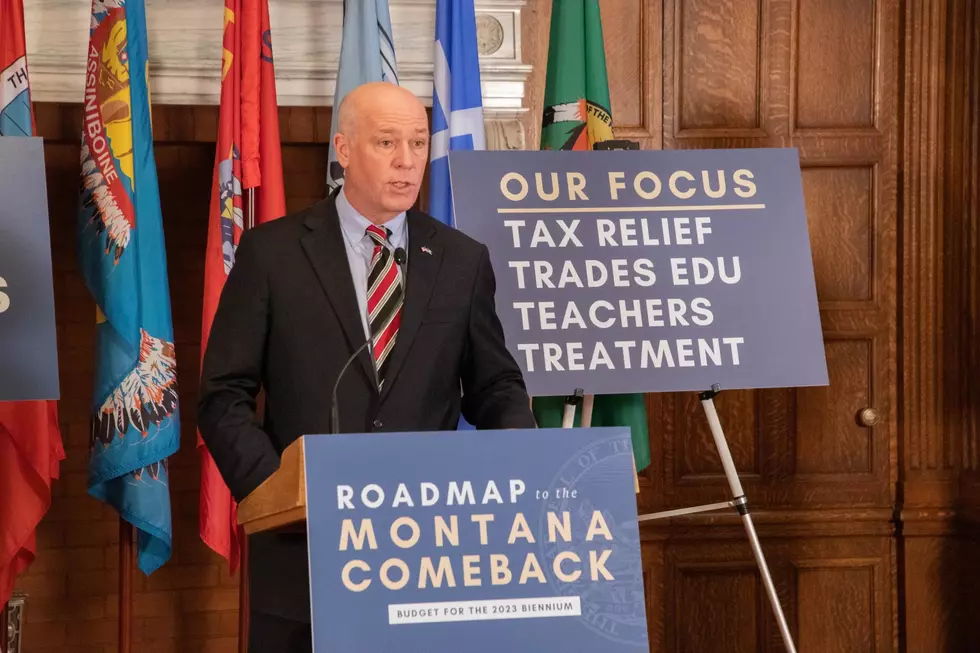
Montana Governor Touts Ability to Win in Trump Country
Montana's Democratic governor was in Iowa on Thursday railing against money's corrupting influence in government and talking up his ability to win in Trump country, but he continued to deflect questions about his plans for a 2020 presidential run.
Gov. Steve Bullock's speech at the Iowa State Fair marked his third trip to the Hawkeye State this year and comes a week before he travels to another early-voting state, New Hampshire, as he explores a potential campaign.
The two-term governor lacks the national name recognition of some of the top-tier Democrats considering a challenge to President Donald Trump, such as Vermont Sen. Bernie Sanders or former Vice President Joe Biden.
Bullock's trying to change that with trips to Iowa and New Hampshire, where he is introducing himself as both a politician with bipartisan appeal and as a crusader against dark money in election campaigns.
"I think that I do have a story about how I've been able to bring people together and I think that's in part what our country desperately needs," Bullock said to a smattering of applause.
He sidestepped a direct question about when he'll decide whether to run. "Right now, what I'm doing is listening and that's honestly as far as it goes," he said.
Bullock spoke at the Des Moines Register Political Soapbox, which features speeches by candidates running for state and federal offices. Other scheduled speakers considering presidential bids include former Housing and Urban Development secretary Julian Castro, U.S. Rep. John Delaney, D-Maryland, U.S. Rep. Eric Swalwell, D-California, hedge fund manager Tom Steyer and entrepreneur Andrew Yang.
David Parker, a political science professor at Montana State University, called Bullock a second-tier candidate with clear strengths but with a major weakness in that "no one knows who he is."
He said Bullock is a potential dark-horse candidate comparable to former President Bill Clinton's rise in 1992 from relative obscurity as Arkansas governor.
"I think his strength and ability is largely dependent on what the rest of the field looks like," Parker said. "Nineteen-ninety-two was a weak field. This field is stronger, but with a number of candidates with serious flaws."
Bullock spent much of his 20-minute speech talking about how the 2010 U.S. Supreme Court's Citizens' United decision that allowed corporate spending in elections has led to Americans' fading trust in elections and government. He also criticized Treasury Secretary Steve Mnuchin's decision a month ago to lift disclosure requirements for some tax-exempt groups that spend money on political ads.
"Think about this: Now, truly, a Russian could write a check and influence our elections — we would never know," Bullock said.
He told the audience that he won re-election as a Democrat in 2016 in a state that President Donald Trump won by 20 percentage points, and that he pushed bills through a Republican-led legislature on campaign finance reform, Medicaid expansion and increased public school spending.
The key is to show up where Democrats don't usually go, engage the people there and listen to them, he said.
"If you can do that in Montana, you can do that in Iowa, you can do that anywhere in the country," Bullock said.
More From KMMS-KPRK 1450 AM









